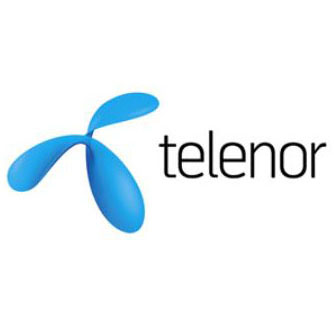New landmark report reveals Telenor Group’s contribution to Asia’s digital future
Telenor Group today unveiled its first Global Impact Report  quantifying the socioeconomic impact of the Group’s contributions in 13 markets across the world, including six in Asia – Bangladesh, India, Malaysia, Myanmar, Pakistan, and Thailand.
quantifying the socioeconomic impact of the Group’s contributions in 13 markets across the world, including six in Asia – Bangladesh, India, Malaysia, Myanmar, Pakistan, and Thailand.
Developed by KPMG, the report is a detailed study of the socioeconomic effects created by Telenor as one of the largest mobile operators in Asia, and its instrumental role in the digitization of Asian economies and societies. Digital inclusion is part of Telenor’s commitment towards the United Nations’ Sustainable Development Goals and specifically Goal 10: Reduced inequalities. The Global Impact Report sheds light on how Telenor’s operations contribute towards this goal.
The socio-economic effects captured in this study were categorized into four key areas:
- Telenor’s contribution to macro-economic growth, including its contribution to Gross Added Value (GVA)[1], its employment impact, its investment and its role in contributing to public finances
- Ways in which Telenor’s services enable the wider economy, including the impacts on digital inclusion, financial inclusion, supporting entrepreneurship and innovation and supporting improved gender equality;
- Telenor’s impacts in terms of sustainability in the supply chain; and
- Telenor’s contribution in crisis situations.
Sigve Brekke, President and CEO of Telenor Group, said, “In Telenor we believe that connected societies are empowered societies. In a changing digital landscape, it is imperative that governments, businesses, and organisations work together to develop frameworks that stimulate growth and create shared value. This report aims to contribute to a constructive dialogue on how we can continue realizing the value and the opportunity of our digital future”.
Sharad Mehrotra, Chief Executive Officer, Telenor India Communications said, “The Global Impact Report reflects Telenor India’s effort to enrich lives of the mass market customers through affordable voice and data services. At Telenor, we believe in creating local impact in areas where we operate. As the country embarks on the digital journey, we will align ourselves to the inclusive agenda of the government and continue to offer easy to use and simple affordable products to stay relevant to the needs of our customers.”
Driving macro-economic growth
In 2015, Telenor Group generated an estimated $9.6 billion in GVA across its six Asia markets. In India, Telenor generated an estimated $346 million of GVA, of which $42 million was directly contributed by the company and rest through its supply chain vendors. As majority of vendors for Telenor are from India, the value generated was retained within the country. Telenor accounted for 0.02% of India’s total national GVA in 2015. Last year, each-full time Telenor India employee generated a GVA of $11,058.On employment, Telenor Group generated an estimated total of 1.2 million direct, indirect and induced jobs[2] in the global economy, of which 1.1 million were in Asia. In 2015, Telenor generated an estimated total of 53,725 jobs in India of which 3,825 people were directly employed with the company and 99.8% of them were Indian nationals. This means that for every one job that Telenor India generated directly, an additional 13 jobs were generated through indirect or induced mechanism. The company has a strong focus on gender diversity and Telenor India had 12% female employees last year which was much higher than the telecommunications industry average.
Enabling the wider economy
Mobile technology plays a central role in addressing a wide range of socio-economic challenges in developing countries, such as improving digital and financial inclusion, gender equality, and creating opportunities through entrepreneurship and innovation. To drive digital inclusion and address consumer barriers such as fear of technology, lack of self-confidence in using mobile phones, and lack of digital skills, Telenor has implemented a range of initiatives in its Asian markets such as education hubs in India to teach customers how to use mobile phones. Thus, KPMG estimates that the total value of mobile financial transactions facilitated by Telenor Group in Asia to be $18.8 billion in 2015.Telenor also works to foster a culture of entrepreneurship and innovation contributing to the vibrancy of India’s start-up ecosystem. Telenor India has taken initiatives to bridge the digital divide as well as raise skillset, knowledge and employment opportunities for women. To increase mobile penetration among women in India, Telenor introduced Project Sampark – an initiative that equips women promoters within communities to create awareness around the benefits of digital and mobile access, particularly amongst females.
Sustainability in the supply chain
Over 2.1 million employees are benefitting from working for supply chain companies with high standards of labour rights and working conditions, following Telenor’s supply chain sustainability policy. As part of its study for the Global Impact Report, KPMG estimated that 629,400 people across 2,109 companies were estimated to be benefiting from working conditions which were following Telenor’s Supply Chain Sustainability (SCS) policy and the Agreement on responsible Business Conduct.Telenor’s contribution in crisis situations
Telenor has played a key role during disaster scenarios, supporting consumers, governments, and wider society through connectivity and the assurance in knowing your loved ones are unharmed. Under the Telenor Together programme, Telenor India has extended post disaster rehabilitation support in the country and in Nepal. The company helped 61 families to build and repair their homes following the damage caused during the Tamil Nadu floods. In Uttrakhand, after the 2013 landslides, Telenor adopted a village and helped them rebuild their lives. Apart from these Telenor employees have been regularly contributing to Prime Minister’s Relief Fund.






